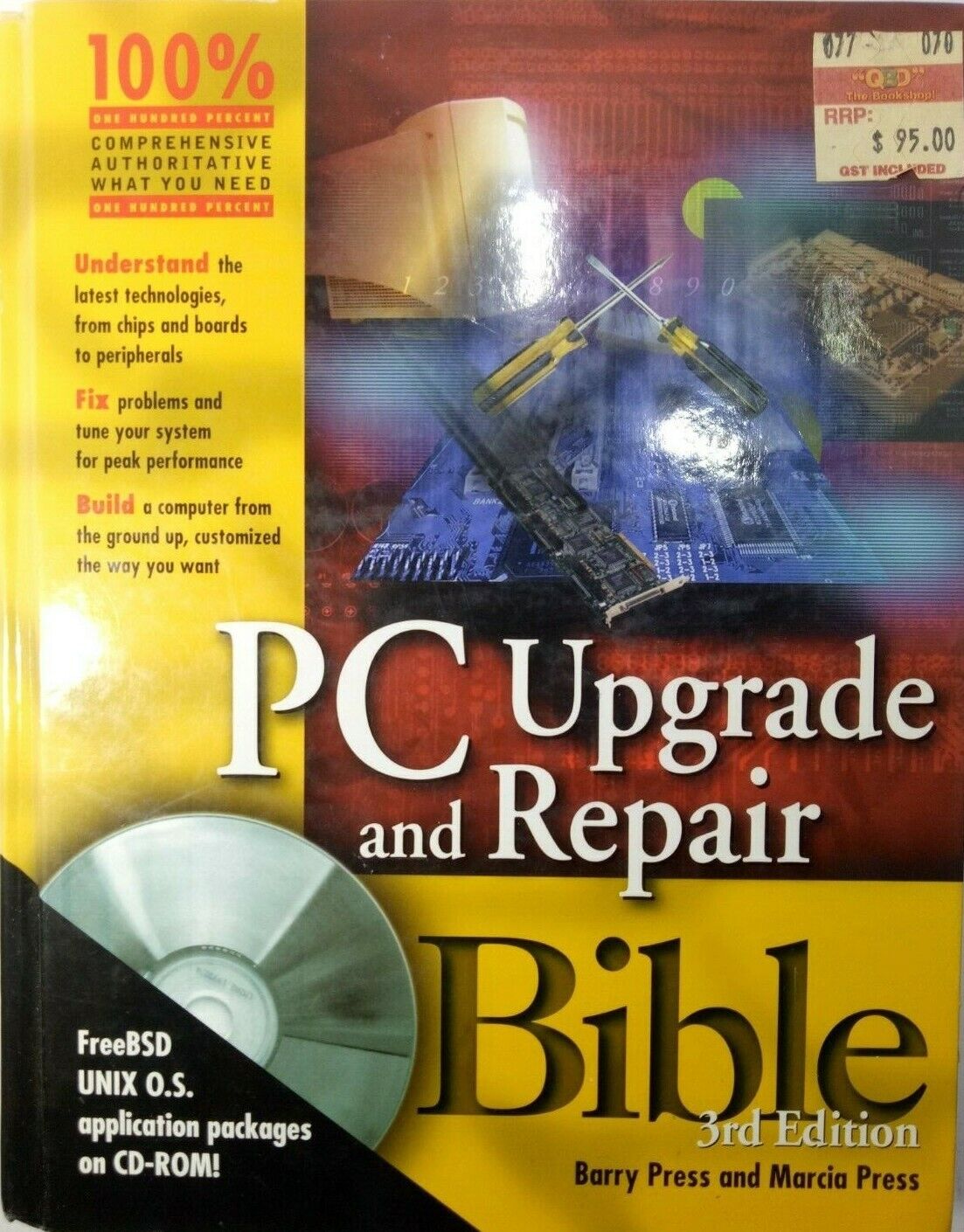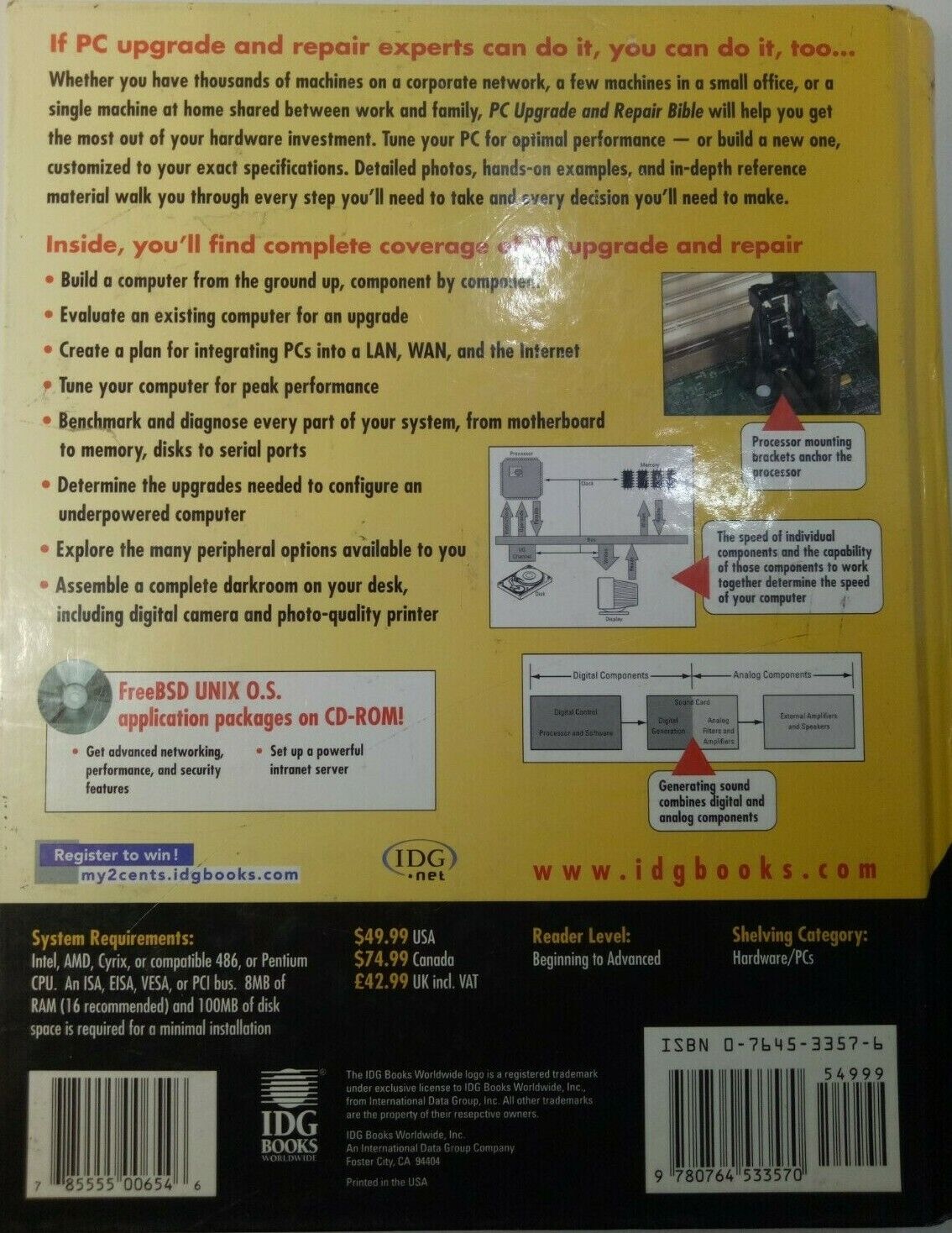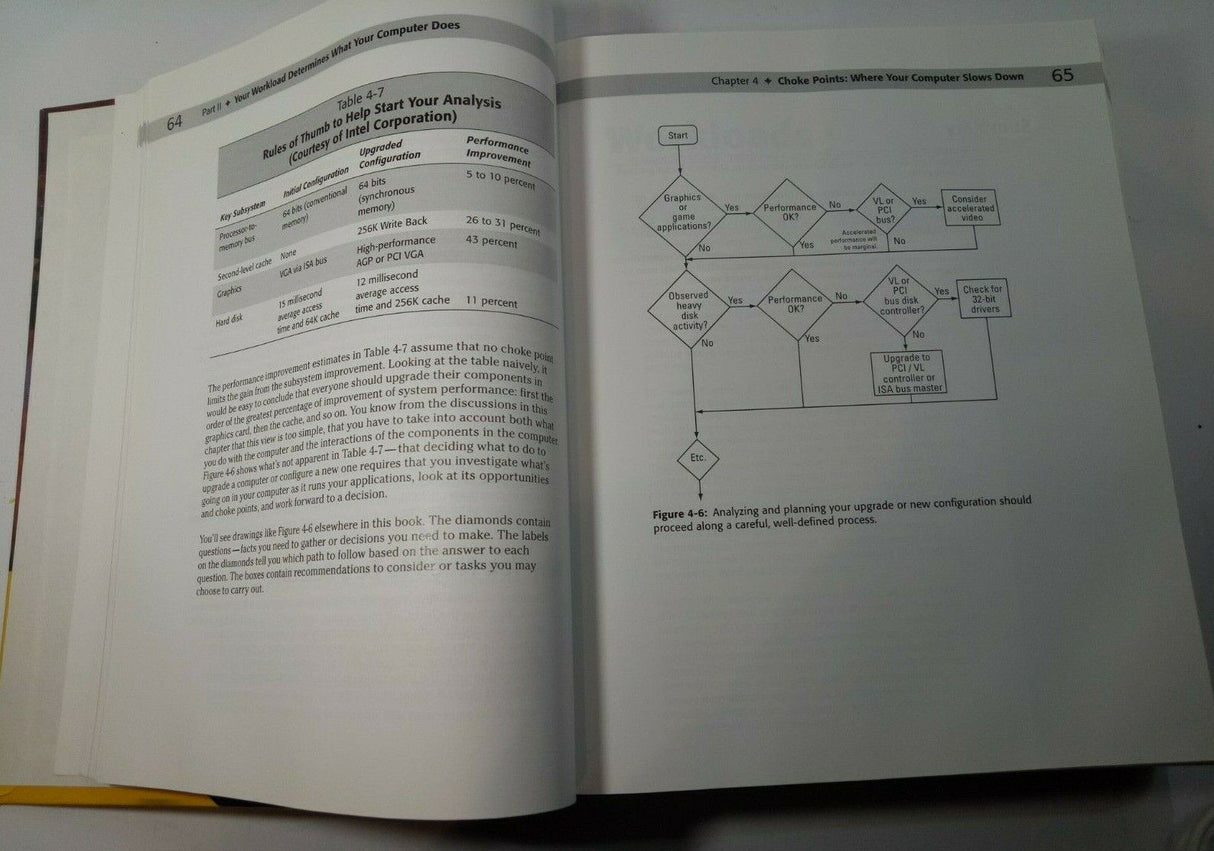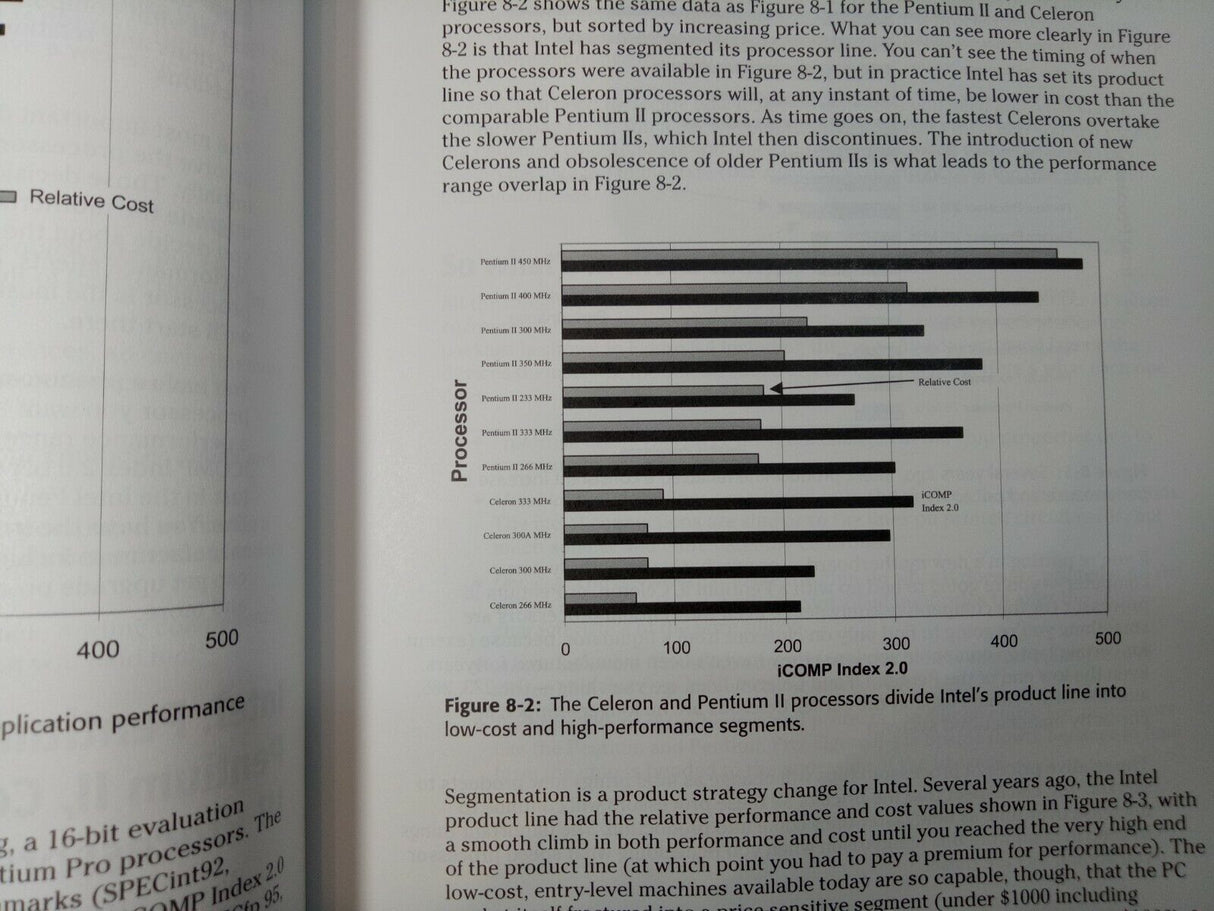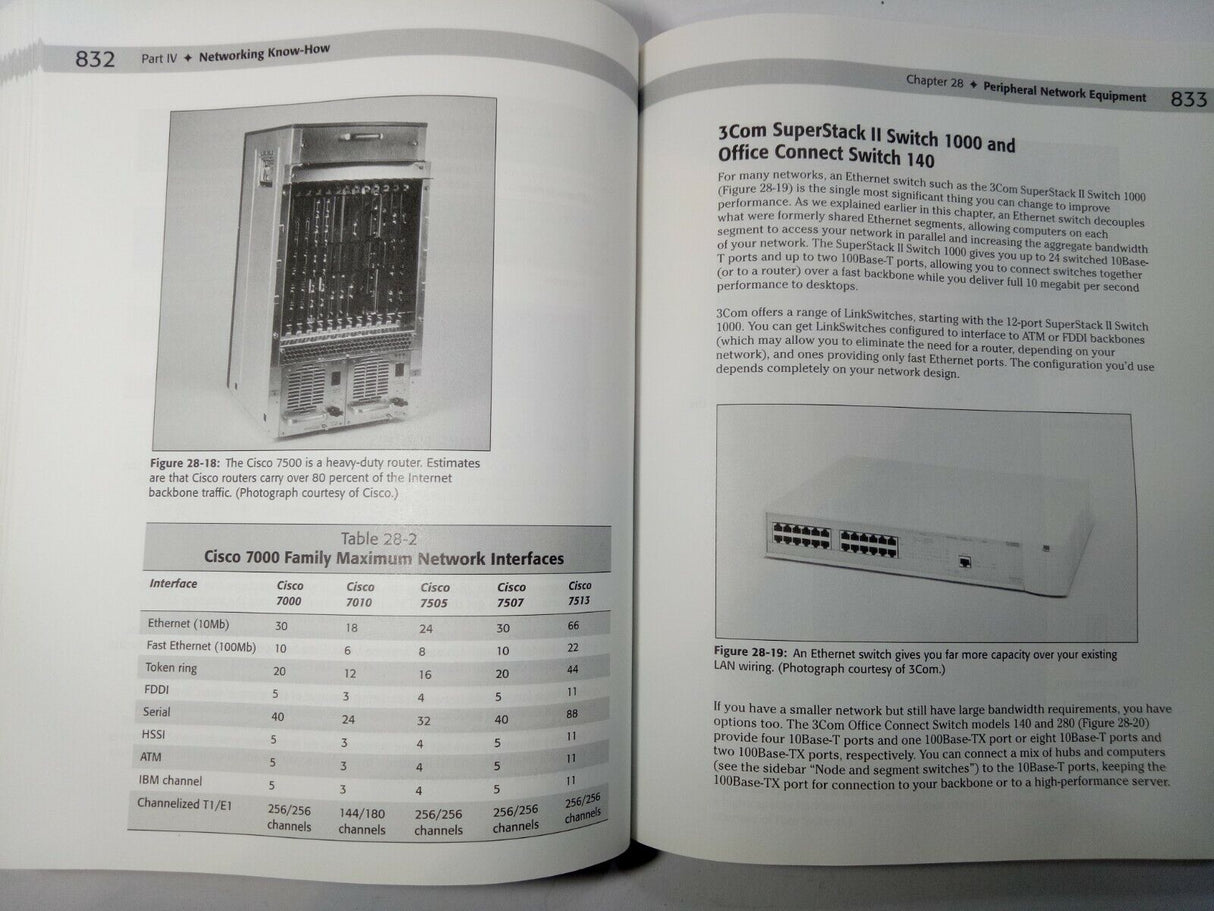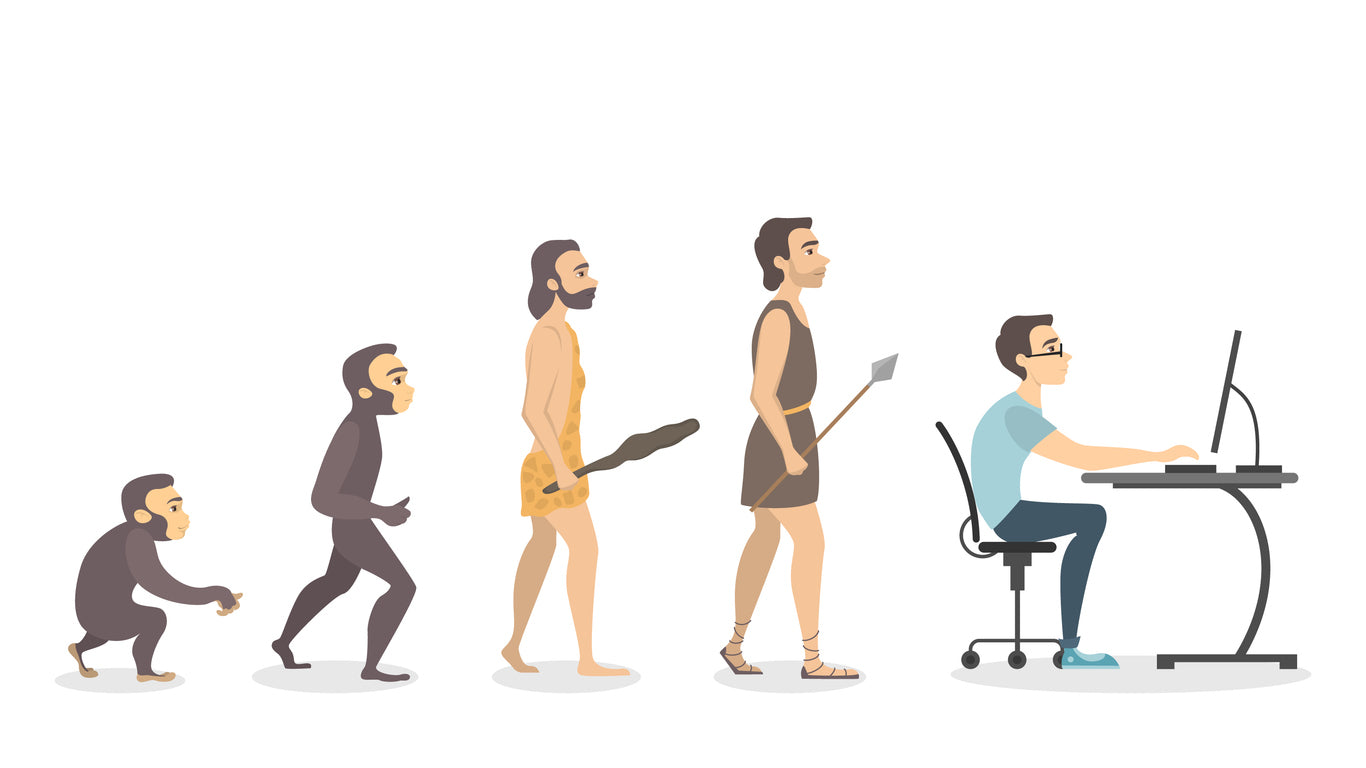PC Upgrade and Repair Bible. (with CD) Old Collectors Item or Study Resource
PC Upgrade and Repair Bible. (with CD) Old Collectors Item or Study Resource is backordered and will ship as soon as it is back in stock.
Couldn't load pickup availability
Product History:
Product History:
“All Parts are Guaranteed. Products sold by Xdeal mostly are never used excess floor stock or parts recycled from dismantling computers. There may be superficial imperfections due to items having been on display.”
Delivery and Shipping
Delivery and Shipping
We pride ourselves with picking and shipping the next day
Description
Description
Choosing a Part/Product-General Thoughts:
- To choose the right computer parts, start by understanding your needs (gaming, work, etc.), then research compatible components and prioritize CPU, GPU, and RAM, while considering your budget and future upgrade plans.
Here's a more detailed breakdown:
1. Define Your Needs and Budget:
What will you use the computer for? (Gaming, work, video editing, etc.)
What is your budget?
Do you plan to upgrade in the future?
Consider system requirements for specific software or games.
2. Key Components and Considerations:
Motherboard:
This is the foundation of your PC, determining compatibility with other components. Consider the chipset, form factor (ATX, Micro-ATX, etc.), and number of expansion slots.
CPU (Central Processing Unit):
The brain of your computer, responsible for processing instructions. Choose a CPU that matches your needs and budget.
GPU (Graphics Processing Unit):
Handles graphics processing, especially important for gaming and video editing. Match the GPU to your CPU's tier for optimal performance.
RAM (Random Access Memory):
Provides temporary storage for data the CPU is actively using. More RAM allows for smoother multitasking.
Storage:
Choose between SSD (Solid State Drive) for fast boot times and application loading, or HDD (Hard Disk Drive) for larger storage capacity.
Power Supply:
Provides power to all components. Ensure it has enough wattage and the right connectors.
Case:
The physical enclosure for your PC. Consider size, cooling capabilities, and aesthetics.
Cooling:
CPU coolers (air or liquid) are essential for keeping the CPU from overheating.
3. Research and Compatibility:
Check compatibility between components. Ensure the CPU is compatible with the motherboard's socket, and the RAM is the correct type and speed.
Read reviews and compare products. Look for reputable brands and models that meet your needs and budget.
Use online resources and PC build guides. These can help you find compatible parts and learn about building a PC.
4. Prioritize and Balance:
Allocate your budget strategically. For gaming, prioritize the CPU and GPU, then RAM and storage.
Don't skimp on essential components. A weak power supply or a poor motherboard can lead to problems.
Consider future upgrades. Choose components that are easy to upgrade in the future.
Payment & Security
Payment methods
Your payment information is processed securely. We do not store credit card details nor have access to your credit card information.
Indulgent Video of Computer History-Enjoy
General Disclaimer: Consider your needs carefully. Your computer is a very important possession. xdeal.com.au is not responsible for any loss of data, software issues, damaged property or personal injury. Use this site, videos, and any advice at own risk.
